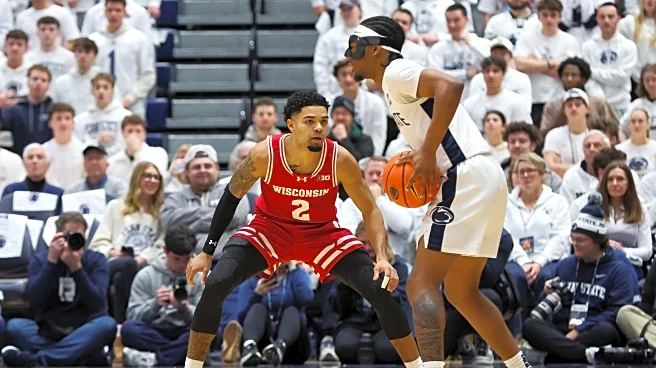What is the story about?
What's Happening?
A federal judge in Arizona has issued a preliminary injunction against the Trump administration's plan to deport dozens of Guatemalan and Honduran children who entered the U.S. alone. The decision by U.S. District Judge Rosemary Márquez came after the administration attempted to deport several hundred Guatemalan minors from government-run shelters and foster care facilities over the Labor Day weekend. The injunction protects 69 children, aged between three and 17, from immediate deportation. The lawsuit, filed by the Florence Immigrant & Refugee Rights Project, argued that the administration failed to coordinate with parents or governments in the children's home countries, undermining the claim that the deportations were in the children's best interests.
Why It's Important?
This legal setback highlights the challenges faced by the Trump administration in implementing its immigration policies, particularly those involving mass deportations. The ruling underscores the legal complexities and humanitarian concerns associated with deporting unaccompanied minors. The decision may influence future immigration policy and enforcement actions, as it raises questions about the administration's ability to execute its immigration agenda without violating legal and ethical standards. The case also draws attention to the broader debate over immigration reform and the treatment of vulnerable populations within the U.S.
What's Next?
The lawsuit seeks to ensure that the children have the opportunity to present their cases and access legal counsel. It also requests that the children be placed in the least restrictive setting that serves their best interests. The administration may need to reassess its approach to deporting unaccompanied minors, potentially leading to changes in policy or further legal challenges. Stakeholders, including immigrant rights groups and government agencies, are likely to continue advocating for the protection and fair treatment of these children.
Beyond the Headlines
The case raises ethical questions about the treatment of vulnerable children in immigration proceedings. It highlights the need for comprehensive immigration reform that balances enforcement with humanitarian considerations. The ruling may prompt discussions about the role of the judiciary in checking executive actions, especially those affecting marginalized groups. Long-term, this case could influence public opinion and policy regarding the rights of immigrant children and the responsibilities of the U.S. government in safeguarding their welfare.















